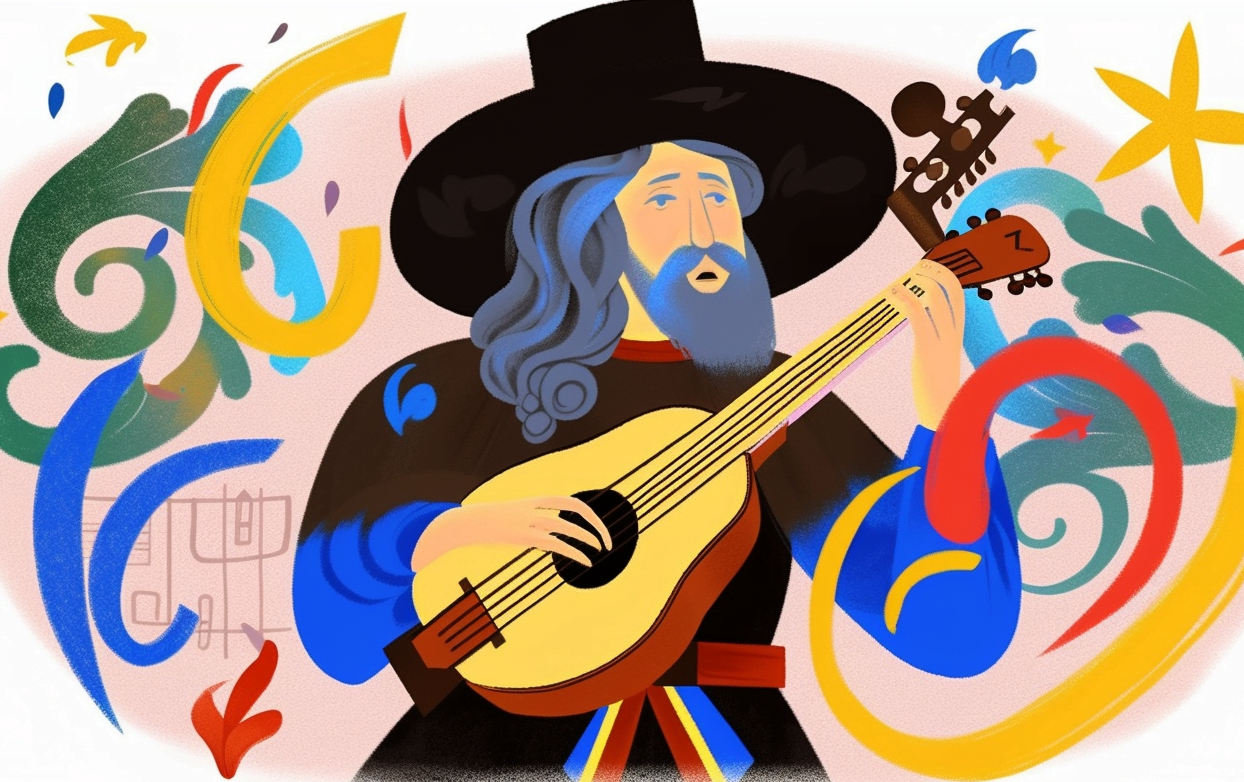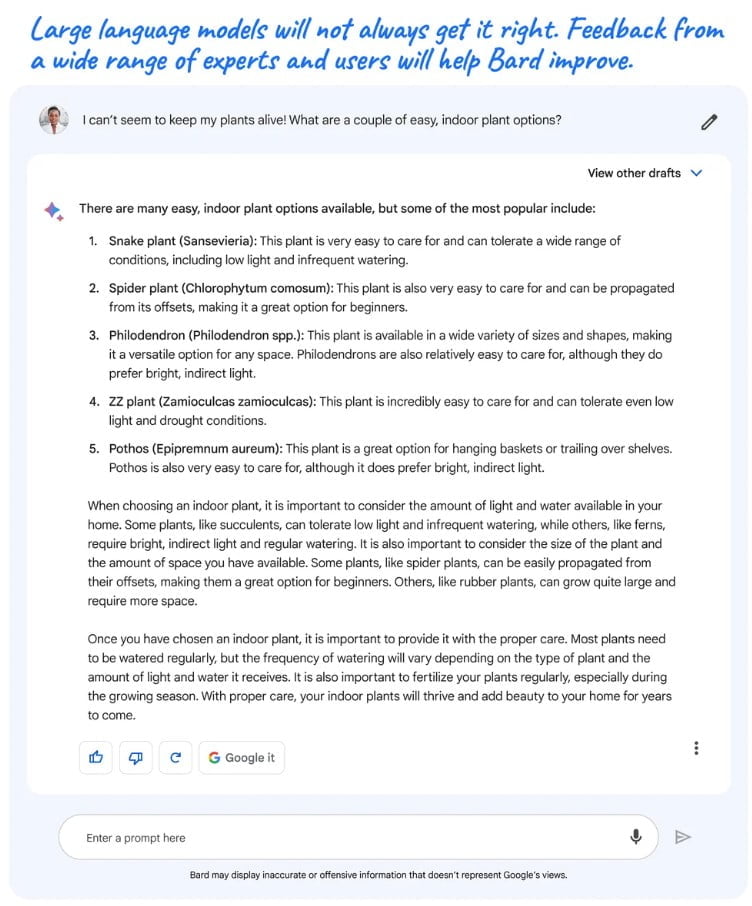You can now test Google's answer to ChatGPT, Google Bard

Update –
The YouTube channel "AI Explained" has uploaded a first comparison video between Bard and Bing. According to the video, both systems are pretty bad at basic search, with Bard being worse at math and the GPT-4-based Bing being "a little smarter" in general. Bing also returns more links than Bard.
But perhaps most importantly, Bard seems to be slightly better at jokes and generates better Midjourney prompts. Of course, we need much more and more detailed testing to come to a conclusion, and both models will be constantly updated.
Google is rolling out its previously announced response to OpenAI's ChatGPT: Bard is now available to everyone in the US and UK.
Since the end of November, OpenAI's ChatGPT has become a global phenomenon, single-handedly sparking an enormous AI hype - even catching supposed AI pioneer Google off guard.
After all, Google had language models such as LaMDA 2.0 that were just as good or even better than OpenAI's models. But the startup got its models into production faster. The launch of GPT-3 showed that OpenAI was willing to move faster and take risks. Of course, the startup has less to lose - both financially and in terms of its image - than Google does.
Google Bard now available in the US and UK
Now Google is following suit with the public rollout of its Bard AI model, announced in early February. Like ChatGPT, Bard is powered by a large, dialog-optimized language model. It is based on Google's LaMDA family of language models, which was first introduced to the public in May 2021.
The conversational AI is now available to the public - free after registration - in the United States and the United Kingdom. Other countries and languages will be added, but Google is not giving any timetable.
A conversational demo with Bard. | Video: Google
Google has "learned a lot" from the extensive beta testing of Bard that has been going on since at least early February, according to the announcement. The next "critical step," it says, is to get feedback from even more people.
Google prepares for Bard weaknesses
Much like OpenAI did with ChatGPT, Google is expected to use the data it gathers from using the system to tweak it. "We continue to see that the more people use them, the better LLMs get at predicting what responses might be helpful," Google writes.
Still, Bard shares the usual weaknesses of large language models. Google points out possible biases in the answers, as well as false information presented with great confidence. Despite these problems, Bard has great potential for boosting productivity and creativity or for search, Google says.

Bard generates drafts and is connected to Google Search
To address the weaknesses mentioned above, Bard should more often provide different answer suggestions, called drafts. The user can select the most relevant or plausible draft and then develop it further with Bard through follow-up prompts.
Video: Google
In addition, Google links Bard responses directly to Google Search, similar to what the Bing bot does: Bard outputs and sources can be sent directly to Google Search from the Bard interface by clicking a button that opens Google Search in a new window. Google describes Bard as a "direct interface to a large language model" and a "complementary experience to Google Search."
One challenge Google faces in launching Bard is that conversational AI could provide long-term competition to its cash cow, Google Search. The latter is highly monetized, while Bard is currently free, has no ads, but generates high computing costs if used by many people.
If chatbots become more widely accepted as a new search paradigm, Google will need to manage the transition, especially financially, without collapsing its balance sheet. In early March, internal information from a Google team meeting was leaked, including the statement that Bard should not replace search.
AI News Without the Hype – Curated by Humans
As a THE DECODER subscriber, you get ad-free reading, our weekly AI newsletter, the exclusive "AI Radar" Frontier Report 6× per year, access to comments, and our complete archive.
Subscribe nowAI news without the hype
Curated by humans.
- Over 20 percent launch discount.
- Read without distractions – no Google ads.
- Access to comments and community discussions.
- Weekly AI newsletter.
- 6 times a year: “AI Radar” – deep dives on key AI topics.
- Up to 25 % off on KI Pro online events.
- Access to our full ten-year archive.
- Get the latest AI news from The Decoder.